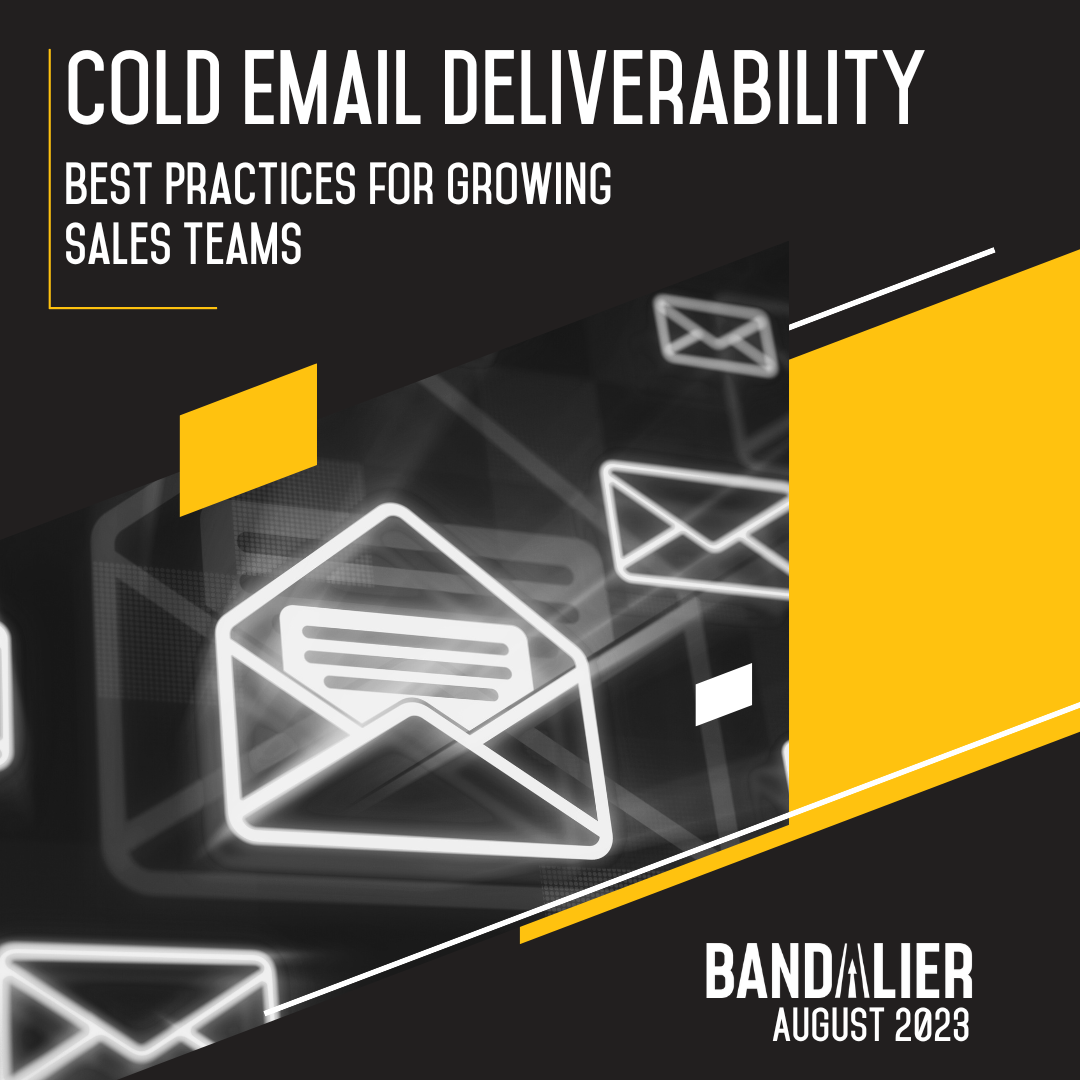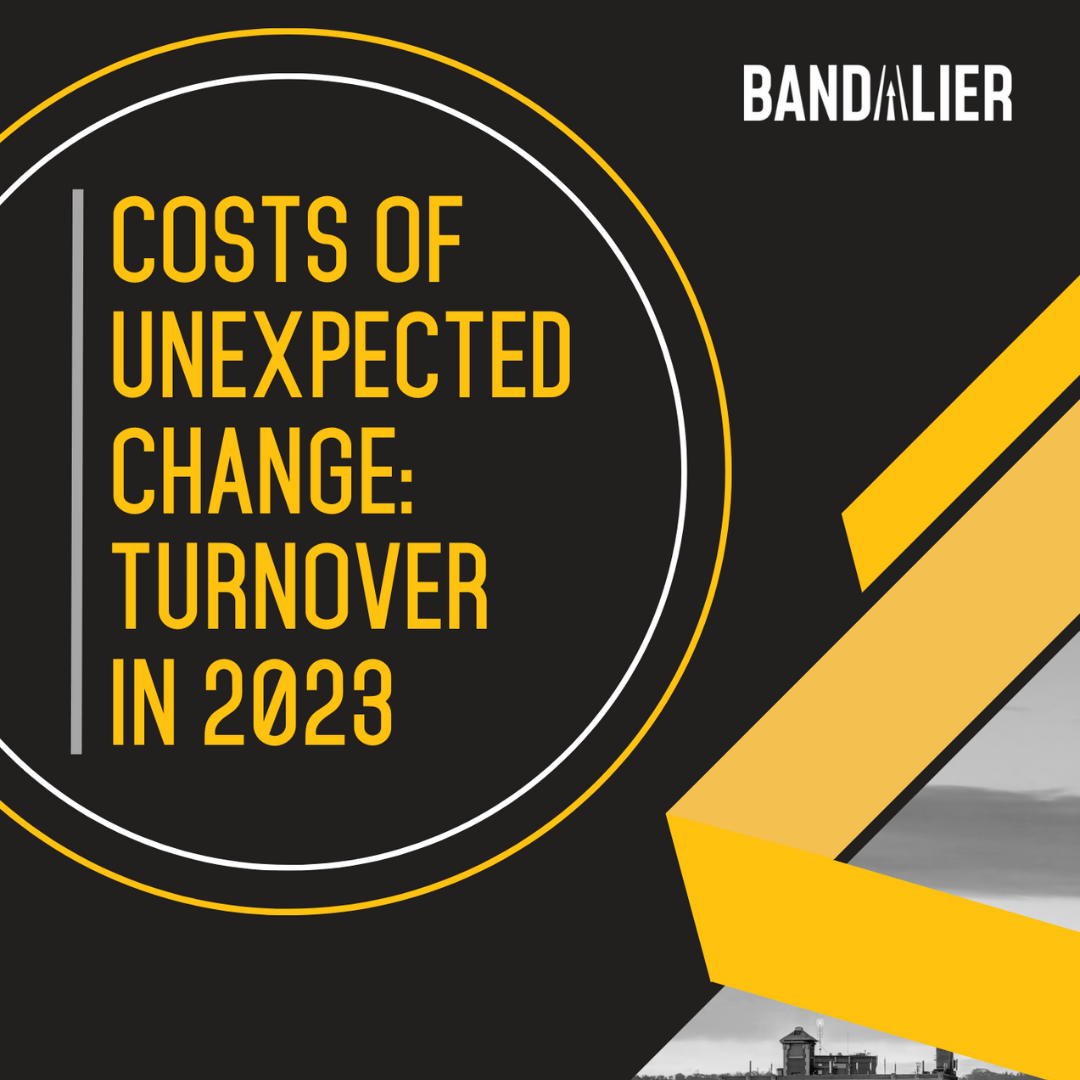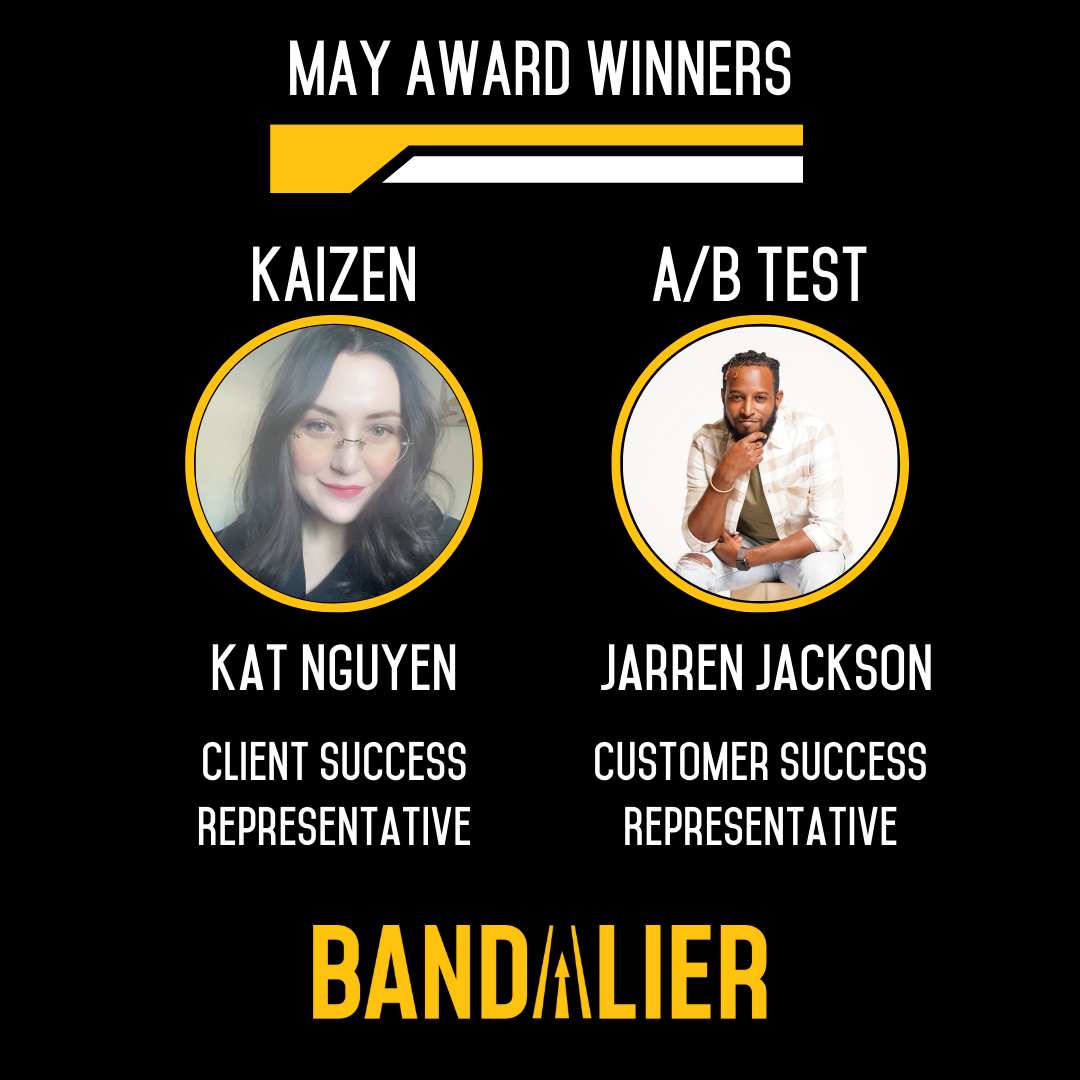Entry-level business development representatives have a lot to learn. They may be new to the world of sales, new to your industry, or just new to your team. Throughout Bandalier’s experience launching hundreds of successful BDRs into new roles, we’ve learned what to expect from them.
What We Expect
Great Questions
We’re big believers in asking better questions. Our most successful team members are the ones who ask the best questions – that’s true from their first interview to their final placement with a client. Asking great questions is a clear signal that the speaker is curious and enthusiastic. Those traits will help any entry-level business development representative succeed long-term!
Whether you’re preparing to ramp up an outsourced BDR or helping an in-house hire learn how to navigate the field, you’ll need to dedicate some time to answer their questions. During the hiring process, we recommend taking notes on the questions each applicant asks. Once your BDR starts training, keep track of the questions they ask. They may bring a fresh perspective to an old problem, or they may ask a question that encourages you to re-evaluate your training process. As they grow into their role, their questioning skills will grow with them. Before long, your BDR should be able to pinpoint each prospect’s pain points and goals within just a few questions.
Remember that they’ll bring these questioning skills into team meetings, too. Make sure to block off time to explore new ideas and dig into the topics that your team surfaces during those sessions.
Regular Ramp
Entry-level BDRs have a lot to learn, and they need to do it quickly. Part of that learning process is planning their ramp timeline and ensuring that it aligns with your team’s goals and the business’s needs. Shortly after onboarding, we expect each BDR to outline their ramp plans in a one-on-one meeting with their direct manager. During that meeting, the BDR should focus on outlining concrete steps for their ramp process. While the focus of the meeting should remain on the ramp plan, it will also be useful to discuss the factors that will influence their ramp. This may include past team members’ strategies and performance, identifying training needs, or simply reviewing what’s expected of this BDR at full ramp.
Team Training
Entry-level BDRs will need to learn how to work as part of a sales team. One of the best ways to do that is to ask for help early on. When our outsourced BDRs are working through our sales training program, Bandalier University, we ask them to schedule a supplemental training session with a senior team member. This practice reminds our team members that you can always ask for help – and that it’s okay if the first person you ask declines.
Since sales professionals rely on their social skills, entry-level reps will see the greatest growth opportunities from working with a wide variety of team members. That might mean shadowing a more senior sales team member, scheduling a 1:1 to learn about inbound lead management from your marketing team, or chatting with your CS team to learn what makes your existing customer tick. By learning widely from your team, entry-level BDRs will be better prepared to connect with cold prospects.
New Techniques
One of the reasons we love working with individuals who are new to sales is the diversity of experiences they bring with them. They bring fresh ideas borne out of their experiences in hospitality, retail, and other fields. That means that each entry-level BDR is bringing something unique to the table, combining it with the best practices that they learn during training.
Bandalier’s outsourced SDRs and BDRs test new techniques each week. Our core value of kaizen keeps us in pursuit of constant improvement, whether large or small. For minor changes, BDRs may test techniques over the course of one to two weeks. For large changes, we recommend at least two weeks of testing and data collection. Regardless of the period, you’ll need to keep careful data on your test results.
Expectations You’ll Need To Set
Activity Levels
Every sales team uses different algorithms to determine how their outreach activities will translate into closed deals. For entry-level BDRs, it’s best to coach them through those calculations. Talk to your new team member about how many activities you expect them to complete each week.
Even if your expectations are centered around results, you should still set clear expectations for their activity level during their ramp period. This will help your team member recognize that they’re off-pace from their goals more easily. Additionally, setting clear expectations for activities will give your team member a better sense of where their outreach may be less successful. If they’re exceeding their call goal each week, but aren’t seeing any results from that outreach, that’s a clear sign that they need to test other channels or alter their call script. Without clear goals, it will be more challenging for your entry-level team members to recognize when they’ve gone off-pace.
Personalization Standards
There’s no arguing with the data: personalizing your email outreach is critical. By changing 20-50% of your email template, you’ll dramatically increase your chances of engaging with a prospect.
For a new BDR or SDR, it can be tough to identify the right balance between personalization and speed. Shadowing senior team members is one of the best ways to help them understand, but running a specialized training session is an excellent introduction. You should discuss where personalizations are most impactful in your outreach, as well as the best practices that your team follows. Last, but certainly not least, you should review your internal policy on using large-language models and AI-powered platforms for writing personalized messages.
To learn more about AI’s applications for sales teams, read our free whitepaper.
Prospect Profiles
Take some time with your entry-level BDRs to discuss your ideal customer profile (ICP). While it may feel intuitive for your team, each ICP is nuanced, and descriptions are often laden with industry-specific terms. If your BDR will be connecting with new prospects, they’ll need to thoroughly understand what features will qualify a prospect to move forward in your sales process.
Career Path & Opportunities
Entry-level BDRs won’t remain entry-level forever. The BDR and SDR turnover rate continues to hover several points above the national average, and lack of opportunity for advancement is a key factor in many individuals’ decision to leave their current role. As your new team member ramps up, be prepared to talk to them about how this role will play into their long-term career.
Expectations for Entry-Level Business Development Representatives
When your entry-level BDR starts training with your team, they’ll be excited to learn from your team. Expect them to ask a ton of great questions as they test new techniques and learn from your existing team members to develop a clear understanding of their ramp progress.
As they do so, make sure your leadership team is there to support them. Your sales leaders should be prepared to coach your newest team members on what their average day should look like, from email personalization to outreach activities. Over time, you’ll need to help your new BDR grow into their next role – either as an AE with your team or by helping them identify what the next step in their career looks like.
Not sure if entry-level business development representatives are going to meet your needs? Contact us today to learn more about our hiring process and how we identify individuals with the potential to succeed as BDRs.














